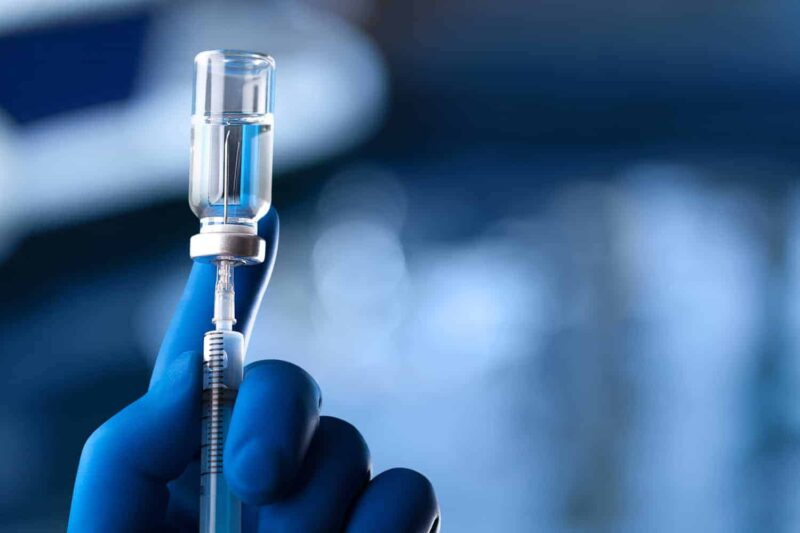The federal government has received cold chain equipment worth $11m to boost vaccine storage, distribution, and immunisation across Nigeria.
The equipment includes 1,653 Solar Direct-Drive (SDD) refrigerators, 165 sets of spare parts, and temperature monitoring devices.
Speaking at the official handover ceremony of the equipment in Abuja on Wednesday, the Executive Director and Chief Executive Officer of the National Primary Health Care Development Agency (NPHCDA), Muyi Aina, said the initiative was supported by Gavi, UNICEF, and the Nigerian government.
Mr Aina emphasised that the delivery of the equipment is timely, considering the series of immunisation campaigns currently being conducted across the country.
He added that by October, the agency will launch a nationwide immunisation campaign targeting over 109 million Nigerians between the ages of 0 and 14.
“Of the 1,653 SDD, 1,241 will be of the brand B medical systems, while the remaining 412 are Dulas brand plus, and these were selected through a very rigorous process that builds on our experience with equipment that we have spread across the country. In addition to 1,653 units, we’re also getting spare parts,” he said.
“One of the things we’re very mindful of is that we don’t want to procure equipment that will function for a couple of years and then break down. So, we have 165 packs of spare parts, and we have 10 10-year maintenance agreements and preventive maintenance by the vendor who supplied us.”
He said the temperature monitoring devices that accompany every single unit of this equipment are also available.
“The first batch of 525 units is here, the rest of the 1,653 have landed in the country. 100 per cent of all of these devices and parts are already in the country,” he said.
Distributions
On distribution, Mr Aina explained that an assessment of existing gaps across the country was carried out, with special consideration for underserved communities and zero-dose children who have not received any vaccines.
He said the 36 states of the federation and the Federal Capital Territory will receive a share of the equipment.
He said 448 units will be going to states in the North-West zone, the North-Central zone will receive 308 units and the North-East zone will get 128.
He added that the South-East zone will receive 205 units, the South-West zone will receive 343 units, while the South-South zone will receive 221 units of the SDD refrigerators.
“In all, 884 units or 53 per cent, just over half of these devices will go to states in northern Nigeria, while 769 or 47 per cent will go to states in southern Nigeria,” he added.
In his goodwill message, the Chief of Health at UNICEF, Maharajan Muthu, said cold chain infrastructure is the backbone of effective immunisation programmes.
Mr Muthu said that as a core alliance partner to Gavi and the NPHCDA, UNICEF, in the area of cold chain, provides technical support in analytics, identification of cold chain needs, procurement, and delivery of state-of-the-art equipment.
“This support package includes 1,653 SDD refrigerators, 165 sets of spare parts, temperature monitoring devices (both remote and 30-Day Temperature Recorders),” he said.
He noted that this investment—valued at approximately $11 million, will significantly enhance Nigeria’s healthcare infrastructure.
“These refrigerators enable outreach to remote communities becoming more efficient and being able to reach more zero-dose children, enabling safe vaccine storage in areas without reliable electricity, and ensuring that safe and effective vaccines reach every child, thereby leaving no one behind.”
READ ALSO: Nigeria records 46 per cent decline in variant poliovirus cases- Official
He said the efforts are likely to contribute to achieving Nigeria’s target of a 50 per cent reduction of zero-dose children by 2028.
“While the supplies handed over today address one set of challenges, however efforts are needed to address some of the remaining challenges like asset registering and tracking, regular maintenance of this equipment, vaccine and logistic stock tracking, monitoring of vaccine storage temperature at all levels, and finding sustainable financing solutions,” he said.
Also, the Acting WHO Country Representative, Alex Gasasira, said the SDD refrigerators will play a vital role in maintaining vaccine quality and safety, especially in remote communities.
Mr Gasasira, who was represented by Alex Chimbaru, noted that the initiative aligns with the WHO’s immunisation agenda.
“By leveraging solar technology, we are ensuring not only the quality and safety of vaccines, but we are also looking to upgrade in underserved areas, advancing environmental sustainability and strengthening our systems’ resilience,” he said.
“With nationwide deployment of these SDD refrigerators, we anticipate substantial improvements in routine immunisation coverage, a reduction in vaccine wastage, better protection against vaccine-preventable disease outbreaks, and enhanced service delivery at the last mile.”










